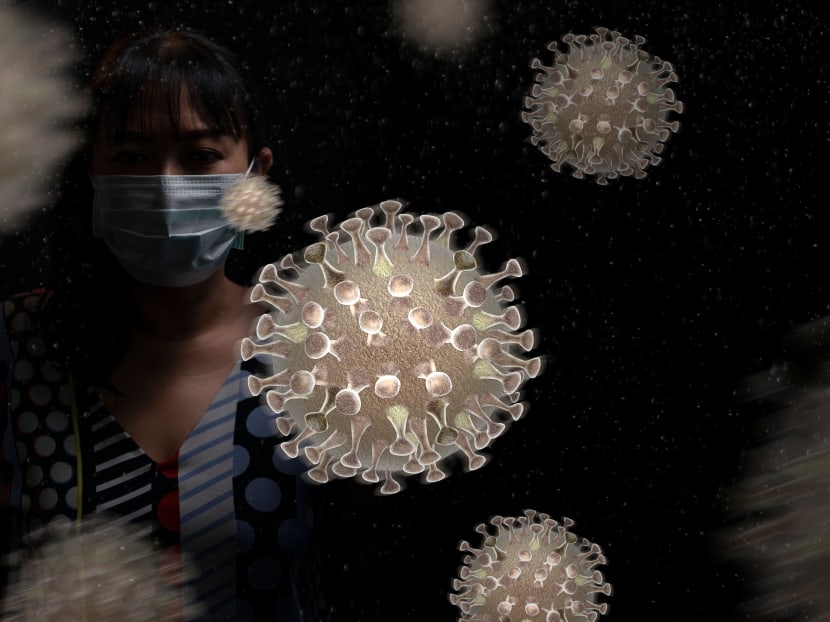Circuit breaker working but unlinked Covid-19 cases, infected migrant workers a concern, says PM Lee
SINGAPORE — Circuit breaker measures to slow the spread of Covid-19 have begun to take effect in the wider community, but the large number of migrant workers who have contracted the virus is a “serious problem”, Prime Minister Lee Hsien Loong said.

Prime Minister Lee Hsien Loong said that there is a larger, hidden reservoir of Covid-19 cases in the community, and this reservoir is the source of unlinked cases, which the authorities have not detected.
SINGAPORE — Circuit breaker measures to slow the spread of Covid-19 have begun to take effect in the wider community, but the large number of migrant workers who have contracted the virus is a “serious problem”, Prime Minister Lee Hsien Loong said.
In a live televised address on Tuesday (April 21), Mr Lee said that infections in the community have fallen in recent days, levelling off to below 30 new cases every day.
He attributed this decline to people “making sacrifices and adhering to the circuit breaker rules”.
However, he warned against complacency, saying that the country must press on to reduce daily infections “to a single digit or even zero”.
This includes reducing cases where the origin of the infection is unknown. This means that they have no links to known clusters or reported cases — and the numbers for such cases have not come down.
“This suggests that there is a larger, hidden reservoir of Covid-19 cases in the community, and this reservoir is the source of these unlinked cases, which we have not detected,” Mr Lee said.
“We also want to make sure that if any leakage occurs from the (workers’) dormitories to the wider community, we can detect it and contain it early, and prevent new clusters from forming and bursting out of control.”
In the same address, Mr Lee announced that Singapore’s circuit breaker restrictions, originally scheduled to end on May 4, will be extended until June 1.
The Ministry of Health on Tuesday said that there were 1,111 new Covid-19 cases, the second consecutive day that cases crossed the 1,000-mark. With these, the number of cases reported in Singapore now stands at 9,125, most of them foreign workers residing in dormitories.
Nearly all these workers have only mild symptoms, likely because they are generally young, Mr Lee said. None of the new cases so far have needed supplemental oxygen or intensive care.
Overall, most of the cases have had mild symptoms, with very few needing oxygen or intensive care, he added.
CARING FOR FOREIGN WORKERS
Mr Lee pledged to do more to protect the health of migrant labourers, saying that the Government will step up medical resources in the dormitories.
It has tested migrant workers extensively for the coronavirus, and dedicated teams of doctors and nurses are supporting all the major dormitories.
The Government will deploy more medical crew to make sure that all workers with fever or flu symptoms receive appropriate and timely medical treatment.
Patients who show mild symptoms will be housed on-site in a separate facility within a dormitory or in community care facilities.
“We will make sure that those who need more active treatment receive immediate attention and can be sent promptly to the hospital to help them recover,” Mr Lee said.
Older workers, who are more vulnerable to the virus, will receive special attention. They will be “pre-emptively” moved to a separate dormitory, where they can be monitored closely.
To migrant workers who were listening to his speech, he said that Singapore will care for them “just like we care for Singaporeans”.
Thanking them for their cooperation, he said: “We will look after your health, your welfare and your livelihood. We will work with your employers to make sure that you get paid and that you can send money home.
“And we will help you stay in touch with friends and family.”
Mr Lee also said that arrangements will be made for Muslim workers during Ramadan, the holy month of fasting for Muslims that is set to begin on Thursday.
“When Aidilfitri comes next month, we will celebrate with our Muslim friends, just as we celebrated the Indian New Year with our Indian friends last week,” Mr Lee said.
“This is our duty and responsibility to you and to your families.”
Aside from the workers in dormitories, the Government is monitoring two other groups of migrant workers closely, Mr Lee said.
They are those who live in shophouses, private housing or Housing and Development Board flats, as well as those in essential services, who are still working this period.
“If these workers move in and out of dorms, they become potential channels for cross-infection in both directions. Hence, we are housing these essential workers separately,” he said, referring to the Government’s effort to house these workers in places such as military camps and floating hotels.
These workers are also being tested to detect infections early.
“So far, the clusters in the dormitories have remained largely contained and have not spread to the wider community,” he added.
“We will do our utmost to keep it this way.”






